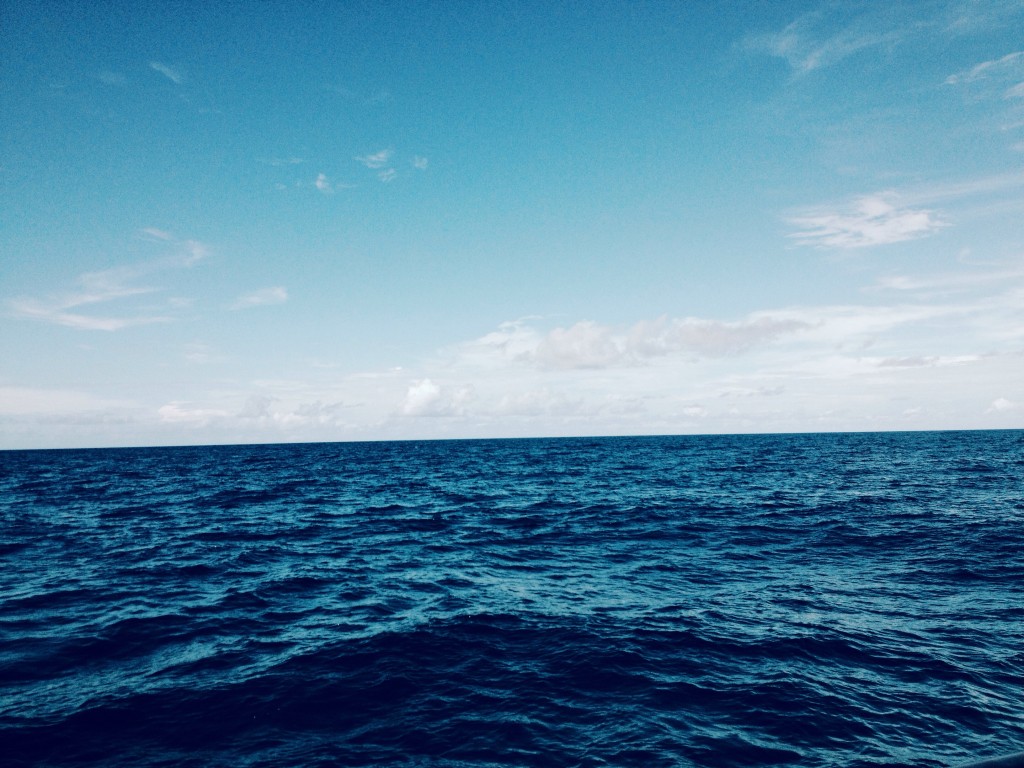1.
Before we were swimmers we were men. In the Morning and cramped it were our hunger that turned, and before us the Quaker laid the sea and we took as we knew how. The sea turned wide and of the whole it could be said empty of end.
2.
The name my father gave me upon my birth was Henry Thomas Smith after himself who goes by Henry. Me being the second boy and with an older sister as well, my brother wanted that name for himself but nonetheless it was spoken and I heeded the name Henry until I were ten years old and my brother Josiah were fifteen. Josiah I think had it in him to be useful and he tried but were always finding himself bad in luck and in addition not very helpful with our stock, always late in the morning and such, and so when he were fifteen our father Henry delivered Inspiration upon my brother and broke his arm one morning for not getting out of bed when called. Of course you cannot be more useful with a useless arm, and our mother wailing something fierce and it got the rest of us out of our covers. What we saw I will not forget, our father dragging Josiah across the kitchen floor and continuing to deliver blows. I didn’t like to see such a thing and as he were waiting on his bed for the Doctor to come administer, I snuck back into the house and offered him my name which he said he didn’t want. I told him I wanted it not as well and so from that day I referred to myself as Thom, it being less historical and mine own as well as being easier to write. I still answered when called but knew to myself that I were Thom and nothing could change that, even when in betrayal Josiah told our Father of my ungratefulness, for which I will not forgive him for I was the recipient of his blows that day. This is only part of my story but it is a story I must tell.
Us being outside the city of New Bedford our house was difficult and the stock were always getting sick and Henry a beast who taught Josiah and myself that Hard Work is no way to make a living for look at him. I guess it were suffice to say that after ten years of age I no longer looked to my Father but to getting away from him and I would also say it held true for my close friends. I did not like New Bedford either but where else had we to go on our own, as Samuel said. The wharfs we ran through and the great casks of baleen which bunched together looked like tall grass or pen feathers, all sold at a price. We did not mean to become hard but that is what happened, and it was often that we would meet in the afternoon and look for Sailors or Portagees who were worse for drink and then swarm them with numbers and take what we could, which was not usually much these poor seamen but what they had in their pockets. For what right had they to come ashore and revel with our town and showing everything they had more than us? They were not from here. I do not feel good about our activities but we did what we did. Once a Portagee insulted Abraham calling him a low-key and gave him a boot and it reddened his ears in front of every person on Church Street. I was there too and everyone found it humorous except for Abraham who said it could not stand, he could not take it from a bantam, and so we convened to follow the offender and thought to assault him when it was more convenient, and covered, and did we so. This was in an alley. The man turned around surprised as if he had forgotten what he had done and then Abraham said Hello! and went first with his knife which found the man’s stomach. The man still surprised fell and sat his back against the wall. He emitted calf-sounds, one hand holding his middle and the other palmed to us asking us to please stop. We none of us thought of what to do next and the man whispering to himself in a languaged way we were not to understand. When he saw that we would attack no more he slowly investigated his stomach and we did not know what was next but it appeared he might be crying and then he did so, looking up at Abraham and then at me and then past both to the street behind, and the people passing between buildings, which we had forgotten about. Gifford said stop and ripped a part of his sleeve and walked it to the man who took it from him and put it to his wound and then rested his dark head on the red brick wall behind him. We watched him slowly breathe and then Abraham said he was sorry and that what he did wasn’t right and was wondering if the man could forgive him, but the man didn’t even look in his eyes, just past him, into the street where others walked, as if it were a disappointment. Our hands at our backs we left him be alone and told no one, and later it was that I went to sea and left all these boys behind.
3.
The Whale cares not for its body afterwards and so there is first a quick cut to the fluke, the affixing of chain, and the slow tug back to the boat where the Quaker our Captain, having not disembarked himself, glasses the sea and stands motionless.
The dismantling is not work to be called pleasant for one feels after such a shared moment that if the world were not imperfect it would not occur at all. And after the work only a letdown as the orders come from the Quaker and his Boy on the planksheer, they are eager to sever the great animal’s case for drilling and ladling. The work that needs to be done is done and the animal is peeled in a piece like an orange and spun violently while done so, slick and dripping, and hoisted for deposit above the deck hanging there like a heavy curtain before being cut to horse pieces and bibled and tossed into the Cast Iron to cook itself usable.
4.
In the offshore we churned sinew from the surfacing Whale, which descended back through the deep indigo and into a certain blackness though it belonged to us. Our captain in his wide hat provided shade from the ever-present and slow sun and in the hoops where lesser of men would perish we did not. There is not quite any thirst like ours at this present moment in the world. Seven years our journey. Neither squid nor whale and now we have taken ourselves to the ice. We freeze to death one by one as if there were something at our backs willing it so.
5.
Losing land the feeling is not one of large movement but that you are a-fixed and the rest of the world is gyring against the very planks. One cannot imagine the loneliness in the hoops for in the hoops you are above the ship’s deck and above all the works, you are sixty feet above and can hear almost nothing unless straining you hear the muted conversations of those below. And sometimes birds are seen which have descended because of what we have summoned forth and there is no protection. The sea is visible everywhere and no land. And the end of the bending horizon, flat, gray, and like some unbendable metal. The Whale’s blood when breached and caught in the bottom of our oar-boat, it sluiced over our bare feet with every stroke, the blood still warm, then tepid, and then by the time we returned to the ship, colder than the sea.
6.
Before we were swimmers we were men but now we have grown larger and unforgettable to ourselves and hence indelible as we sign our names to the document. Is there anyone came before us? No. Is there anyone came after us? We answer again no. You may attempt to contain what you have found, but we are now an immense sun and may it be true that we clutter your thoughts for all we have accomplished.
[Thom Smith, Halcyon Crew, Kingsmill Island, 1854]




